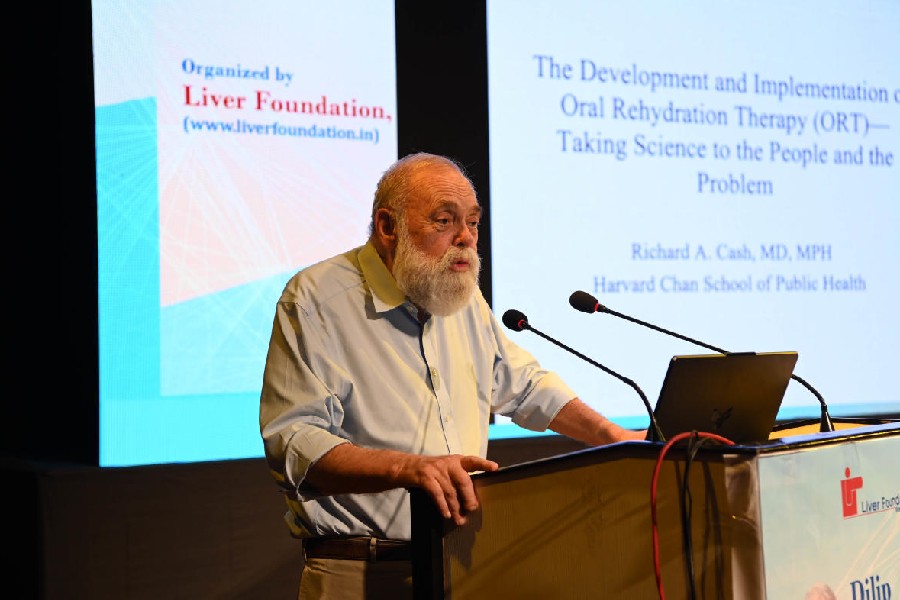A scientist, who did the clinical trials for oral rehydration solution (ORS), spoke about the stories behind how ordinary people had to be been explained the use of the solution in its early days at a talk in the city on Monday.
Richard Cash, the distinguished global health scientist at the Harvard Chan School of Public Health, spoke about how some women who were entrusted with the responsibility to explain the use of the solution to the community had to drink the solution to convince people in the 1960s in Bangladesh.
"At that point in time, a lot of people were visiting villages to talk about birth control measures. So there was scepticism," Cash said at an auditorium in the city on Monday evening where he delivered the first Dilip Mahalanabis Oration Lecture. He was speaking about his experiences of working in Bangladesh.
Cash narrated how workers went to homes to show villagers how much water was required to make the solution.
There was no standard pitcher, which is when the workers decided to visit the homes with 500cc containers.
The villagers were asked to bring any container. When the requisite amount of water was poured into the container, the visitors made scratch marks in the containers so that villagers knew how much water to use.
Liver Foundation West Bengal organised the lecture.
While Cash published the results of the clinical trials in Lancet in 1968, it was Dilip Mahalanabis, a doctor from Calcutta who pioneered the wide-scale use of the solution at a refugee camp in Bongaon in 1971.
Mahalanabis, who passed away in October last year, went to Hare School, Ramakrishna Mission Belur and the Calcutta Medical College and Hospital.
He also studied and worked in the UK and the US.
When he returned to Calcutta in the 1960s, Mahalanabis joined the Beleghata Infectious Diseases Hospital.
In 1971, Bangladesh Liberation War had broken out and many refugees crossed the borders and came to India
Poor sanitation facilities in the refugee camps meant many of them were infected with cholera.
Mahalabanis prepared the ORS and kept it in drums from where people took it in their containers.
"Mahalanabis used market ingredients to make sachets of ORS. The use of ORS led to a drop in mortality in the refugee camps," he said.
Years later the World Health Organisation recommended the use of ORS in the treatment of diarrhoea and cholera.
A documentary with excerpts from an interview with Mahalanabis was also screened after the lecture.
